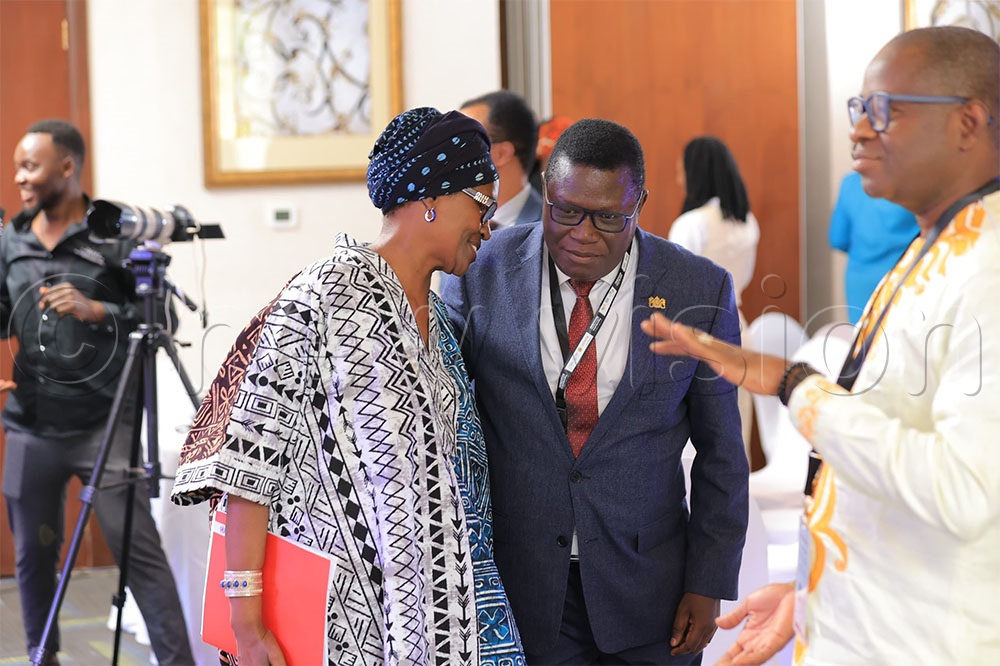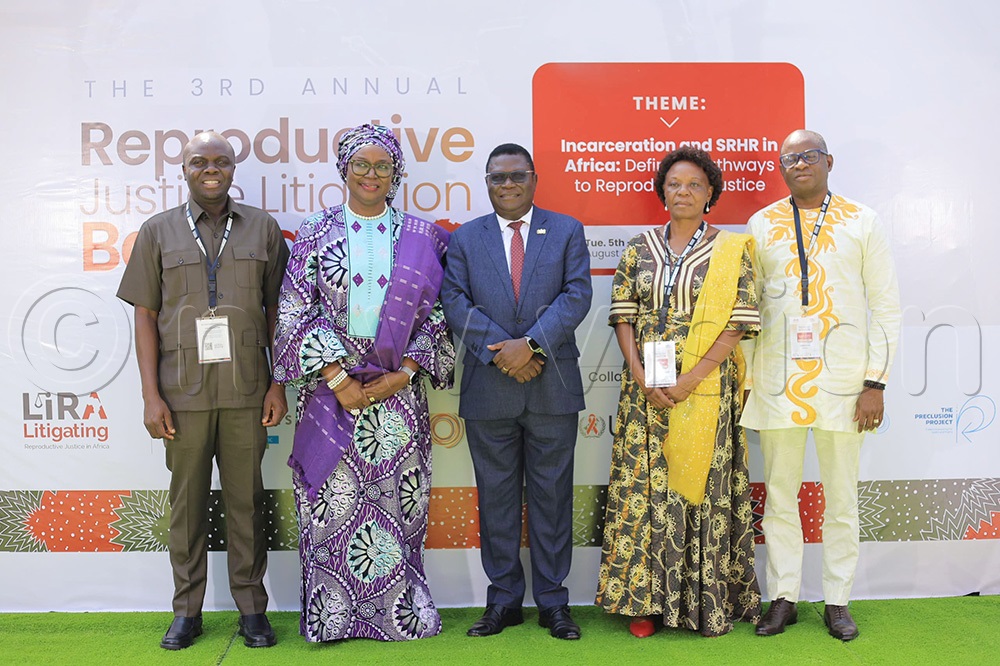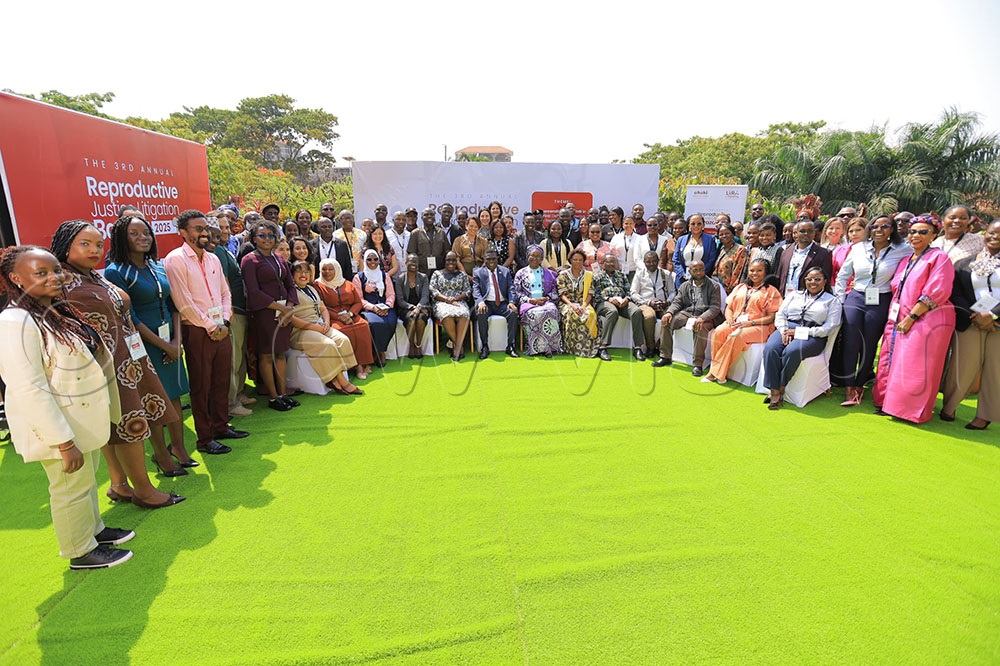Ugandans urged to embrace adoption to protect children’s rights
“If a young girl is defiled by the father and becomes pregnant through the act of incest, we must not talk as if it is a choice between abortion or non-abortion. Other options, such as adoption, have to be taken to protect the rights of the child,” says justice minister Norbert Mao.
Justice minister Nobert Mao addressing guests during the 3rd Annual Reproductive Justice Litigation Baraza. (Photo by Agnes Kyotalengerire)
By Agnes Kyotalengerire
Journalists @New Vision
_________________
Ugandans have been urged to embrace adoption as a strategy to protect the rights of children.
“If a young girl is defiled by the father and becomes pregnant through the act of incest, we must not talk as if it is a choice between abortion or non-abortion. Other options, such as adoption, have to be taken to protect the rights of the child,” says justice minister Norbert Mao.
He adds that a decision has to be made if someone is a victim of rape.
Justice minister Nobert Mao and UNAIDS executive director Winnie Byanyima interacting during the 3rd Annual Reproductive Justice Litigation Baraza. (Photo by Agnes Kyotalengerire)
The minister says that often, people dump children at the Watoto Church gate, where they are picked up and taken care of well.
In Uganda, individuals and families are still reluctant about the issue of adoption despite having a law in place.
Adoption is primarily governed by the Children Act of 1997, as amended. The process involves obtaining an adoption order from the High Court or Chief Magistrate's Court, depending on the applicants' citizenship. The best interests of the child are paramount, and the law outlines specific requirements for prospective adoptive parents, including age, relationship to the child, and financial stability.
Mao says imprisonment of young girls who abandon their babies is not the best option. “Why would you imprison a 14-year-old who has dumped a child in a pit latrine?”
The minister's appeal is to the public to have empathy and understand the context of such crimes.
Officiating at the ongoing 3rd Annual Reproductive Justice Litigation Baraza 2025 in Wakiso district, Mao also faulted the law for not implicating men who father children and neglect them: “Is this because the law only focuses on the women and leaves the men at large?”
He said that, considering that justice should be for all, society cannot be seen to turn a blind eye when men are involved, and only opens its eyes when women are involved.

The Minister of Justice and Constitutional Affairs, Nobert Mao and the Director General of Afya Na Haki Moses Mulumba pose for a photo with other delegates. (Photo by Agnes Kyotalengerire)
The three-day baraza is organised by Afya na Haki at Lake Victoria Serena Golf Resort and Spa, Kigo, and is themed: “Incarceration and SRHR in Africa: Defining pathways to reproductive justice”.
UNAIDS executive director Dr. Winnie Byanyima, Supreme Court Judge Lady Justice Lillian Tibatemwa and Ahaki Board of Trustees chair Prof. Ben Twinomugisha attended the meeting.
'Not moving fast'
Echoing the agenda of reproductive rights, Byanyima said it is about women in poverty who are not aware of these rights.
“Their awareness is important. The narrative to them about their rights must be framed in the language they understand," she said.
The baraza also convened scholars, officials from academicians, lawyers, judges, government officials, activists and practitioners from across Africa and the wider global south to deliberate on SRHR issues related to incarceration in Africa.
Moses Mulumba, the director general of Afya Na Haki, urged the Government to amend laws and policies that lead women to prison.
He said that often, women grappling with mental problems have been convicted and imprisoned, which leads to injustice. “Some of those women need rehabilitation. Unfortunately, the laws and policies are not moving as fast."
Mulumba called for the need to revisit other social and economic factors that send women to jail.
Incarceration of women was in the past practised in southwestern Uganda, where communities would throw pregnant teenage girls and young women over a cliff in Rukungiri, while others were taken and abandoned at the punishment Island in Lake Bunyonyi, located between the districts of Kisoro and Kabale, a barbaric act which the government halted.

Mulumba spoke of the colonial laws that are still leading many women to jail. He said the current Penal Code provisions are still legacies from the British who brought the laws.
“As African countries, we have been blinded by what we call values, and we forget that we are dealing with humans. We are dealing with a society that needs to move out of the mindset of the colonial regimes,” he said.
Mulumba said part of the colonial agenda should be focused on amending and changing the laws. “There is a need to expand those grounds and do much better."